In today's digital landscape, ensuring the security of our information systems is more important than ever. As cyber threats continue to evolve, it's crucial for businesses and organizations to adopt comprehensive cybersecurity policies that protect sensitive data and maintain operational integrity. This letter serves as an official notice regarding the implementation of our new cybersecurity policy, designed to safeguard both our assets and our stakeholders. We invite you to read more about the specific measures and protocols that will be enforced in the upcoming weeks.

Purpose and Objectives
Effective cybersecurity policies are critical for safeguarding sensitive data and maintaining organizational integrity in today's digital landscape. The primary purpose of implementing a cybersecurity policy is to establish a framework for protecting information systems against unauthorized access, data breaches, and other cyber threats that can arise daily. Objectives include ensuring compliance with regulations such as the General Data Protection Regulation (GDPR) and the Health Insurance Portability and Accountability Act (HIPAA), fostering a security-aware culture among employees, mitigating risks associated with cyberattacks, and outlining procedures for incident response and recovery. Regular training sessions and updates will keep all members informed about evolving threats and best practices for data protection.
Scope and Applicability
The cybersecurity policy applies to all employees, contractors, and third-party vendors involved with [Company Name] operations and systems. The policy encompasses sensitive information and operational technology across various departments in locations such as [specific location or cities]. This includes the protection of data assets (e.g., personal identifiable information, intellectual property) which undergoes strict handling, storage, and transfer regulations (e.g., GDPR, HIPAA). Compliance procedures are mandatory for all technology utilized within organizational systems, including but not limited to, network servers, cloud storage solutions, and employee device management protocols. Failure to comply may result in disciplinary actions, including termination and potential legal consequences, established by [relevant legal frameworks or guidelines]. Regular training sessions will be scheduled quarterly at [specific locations or virtually] to ensure understanding and adherence to this policy.
Roles and Responsibilities
The implementation of a cybersecurity policy is crucial for safeguarding organizational assets against data breaches and cyber threats. Employees should undergo training sessions on roles and responsibilities outlined in the policy, which include data protection measures, incident reporting protocols, and secure password creation practices. Designated personnel, such as IT security officers, must regularly monitor network security (including firewalls and intrusion detection systems), while department heads are accountable for ensuring compliance among team members. Regular audits (scheduled quarterly) should assess adherence to policies and identify potential vulnerabilities in systems. Furthermore, all employees are required to participate in simulated phishing exercises to enhance awareness of social engineering tactics used by cybercriminals.
Compliance and Enforcement
In the realm of cybersecurity, compliance and enforcement are pivotal elements for protecting sensitive data and maintaining operational integrity. Compliance involves adhering to established regulations and standards, such as the General Data Protection Regulation (GDPR) which imposes requirements on organizations handling personal data in European Union member states. Enforcement encompasses the policies and procedures put in place to ensure that these regulations are followed, including regular audits and assessments carried out by cybersecurity teams. Consequently, organizations must implement robust training programs for employees to cultivate awareness of potential security threats, as human error is a significant vulnerability. Moreover, incident response plans should be established, detailing steps to take in the event of a data breach, which can have severe consequences, including legal actions and financial penalties. Regular updates to the cybersecurity policy will reflect evolving threats, ensuring alignment with best practices in digital security, and adherence to industry-specific regulations, such as the Health Insurance Portability and Accountability Act (HIPAA) for healthcare information.
Review and Updates
In light of recent cybersecurity threats impacting organizations globally, implementing a comprehensive cybersecurity policy is vital for safeguarding sensitive data and maintaining operational integrity. The updated policy emphasizes prioritizing employee training programs on identifying phishing attempts and securing personal devices, addressing the need for multi-factor authentication protocols. Regular audits will occur bi-annually, ensuring compliance with industry standards, such as the General Data Protection Regulation (GDPR) and the Health Insurance Portability and Accountability Act (HIPAA). Additionally, an incident response plan will be established, detailing steps for immediate action during data breaches, thereby minimizing operational disruptions and protecting personal information. Stakeholders will receive ongoing education on cybersecurity best practices to foster a culture of security awareness within the organization.

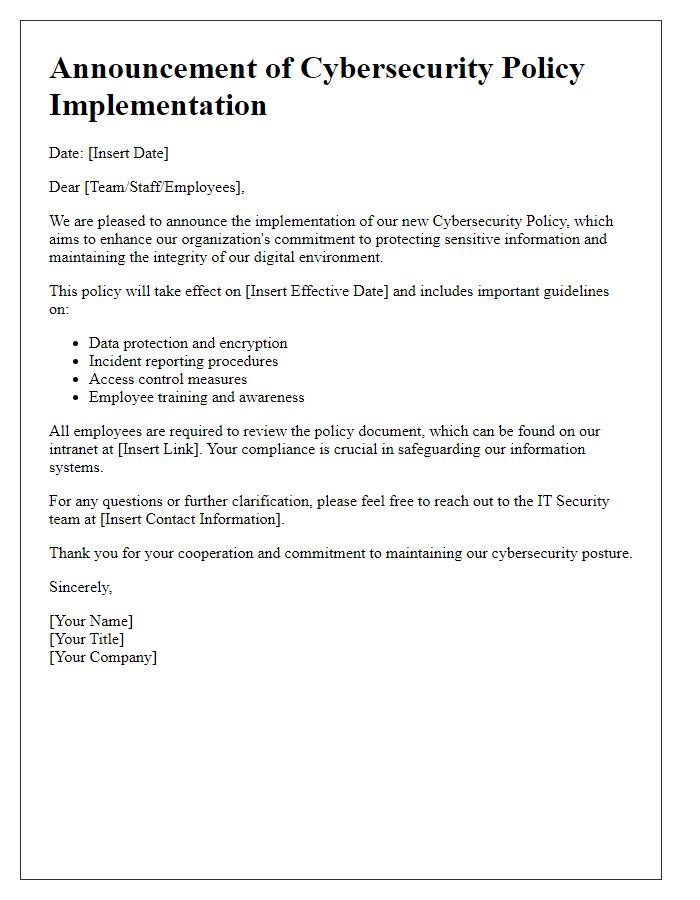
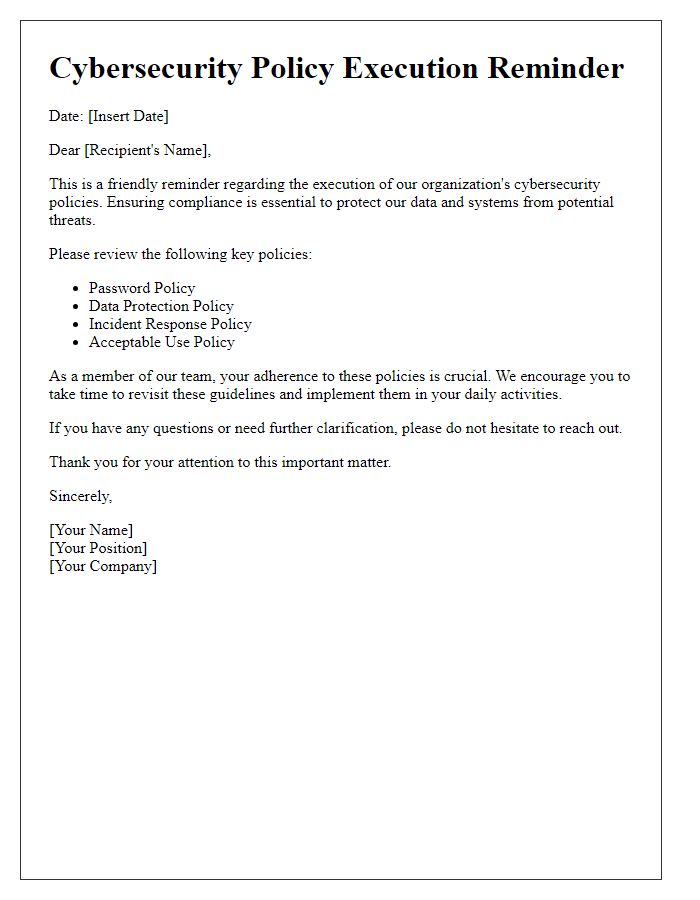
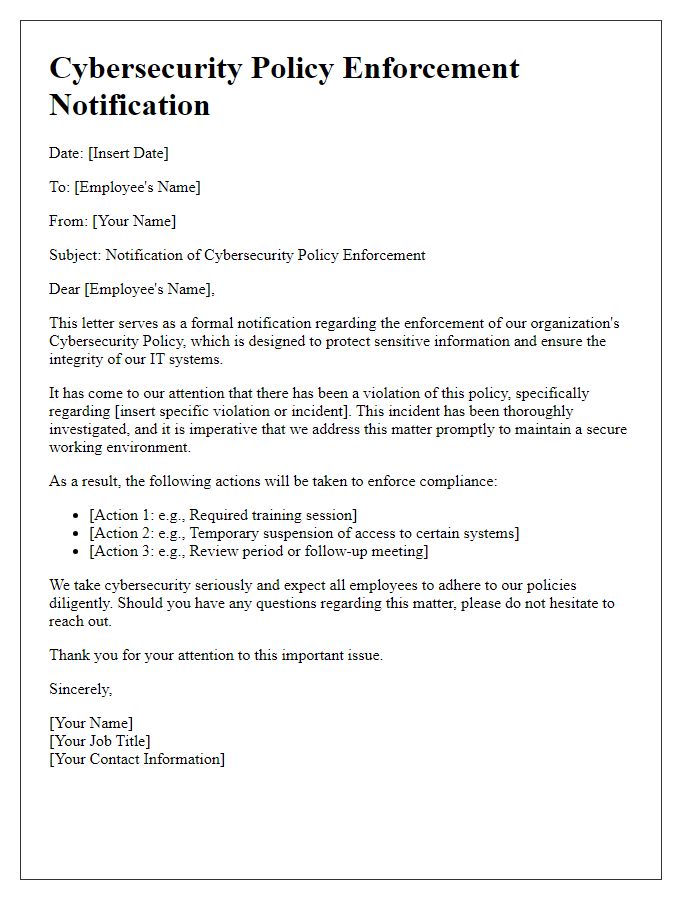
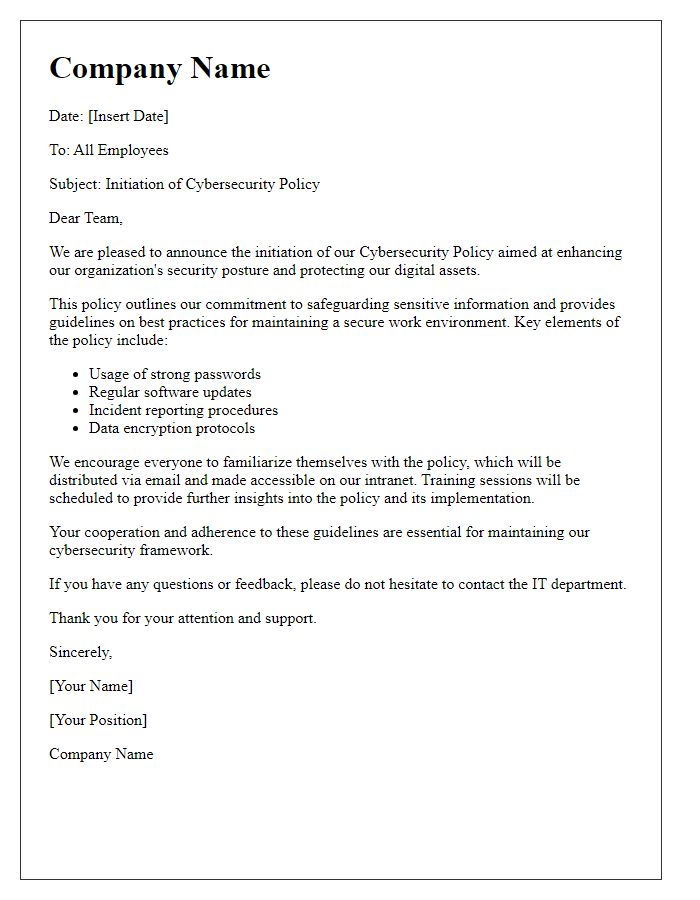
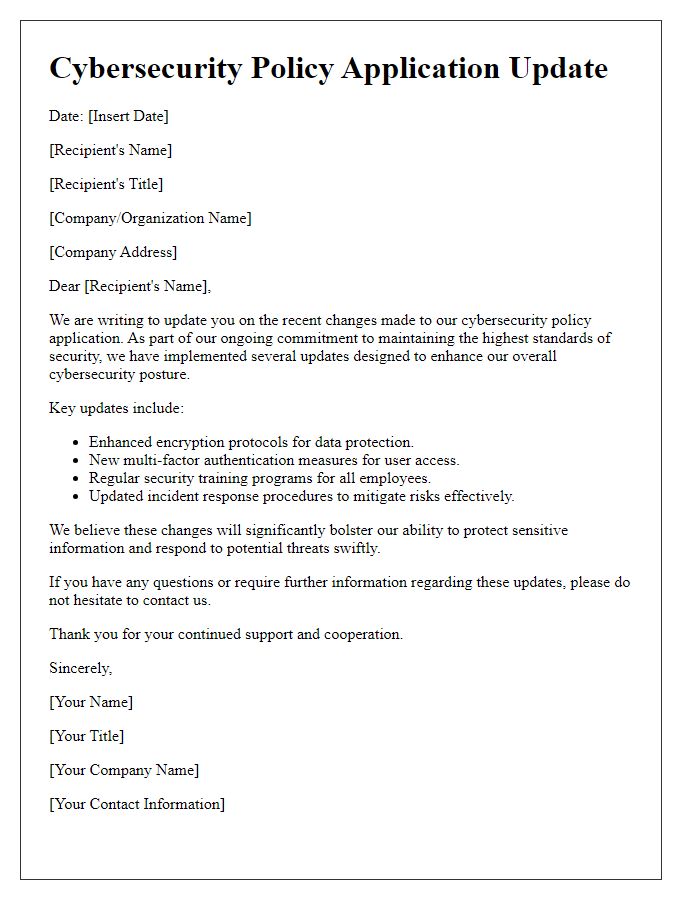
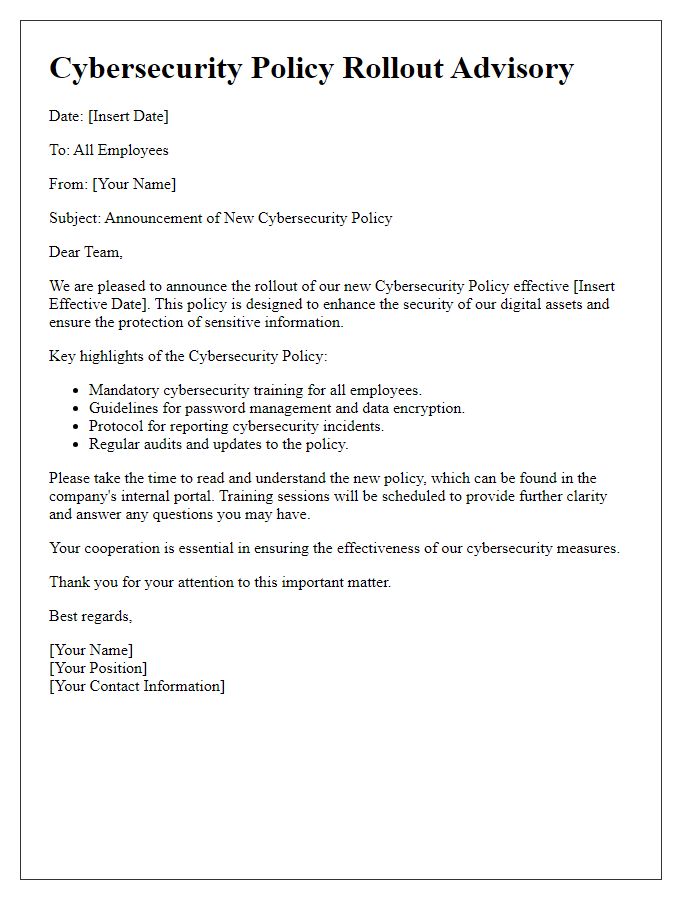
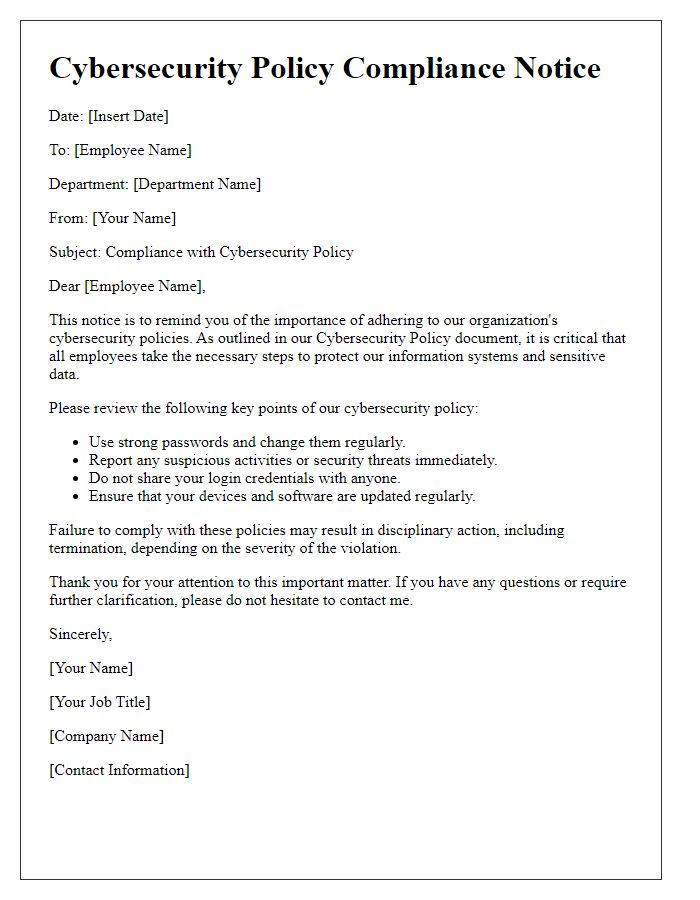
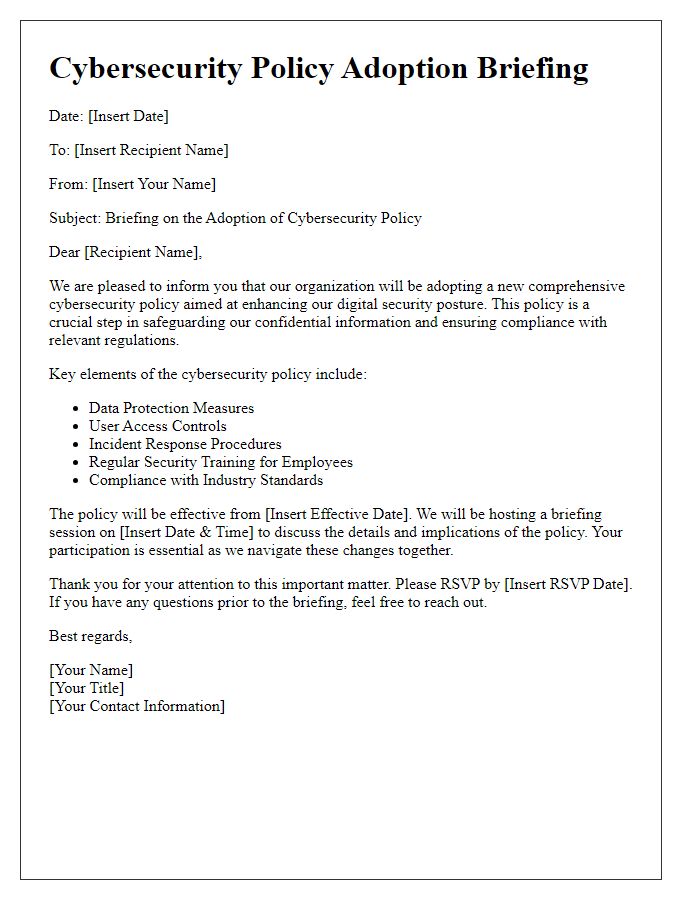
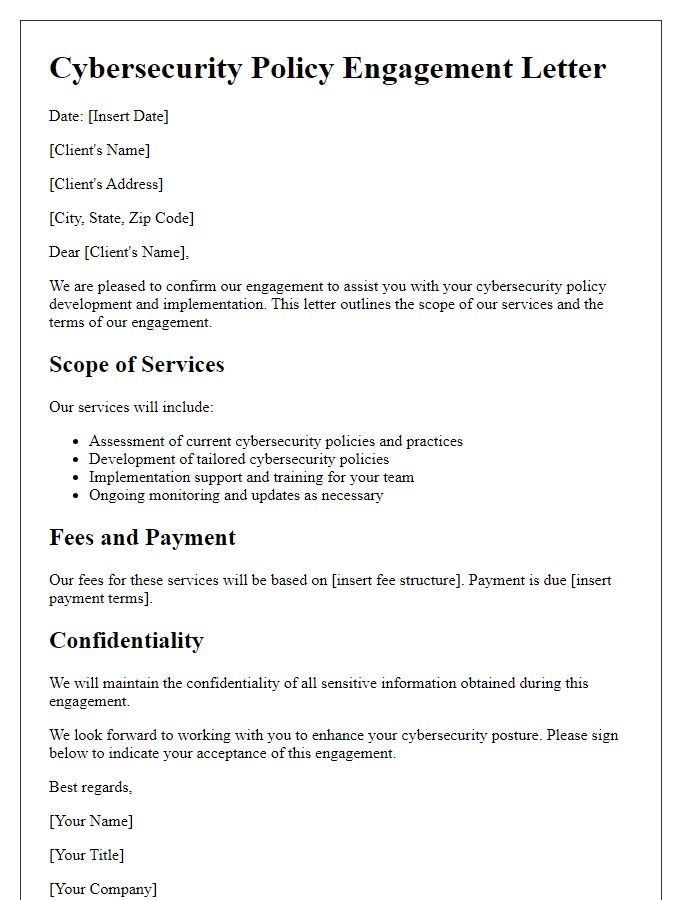
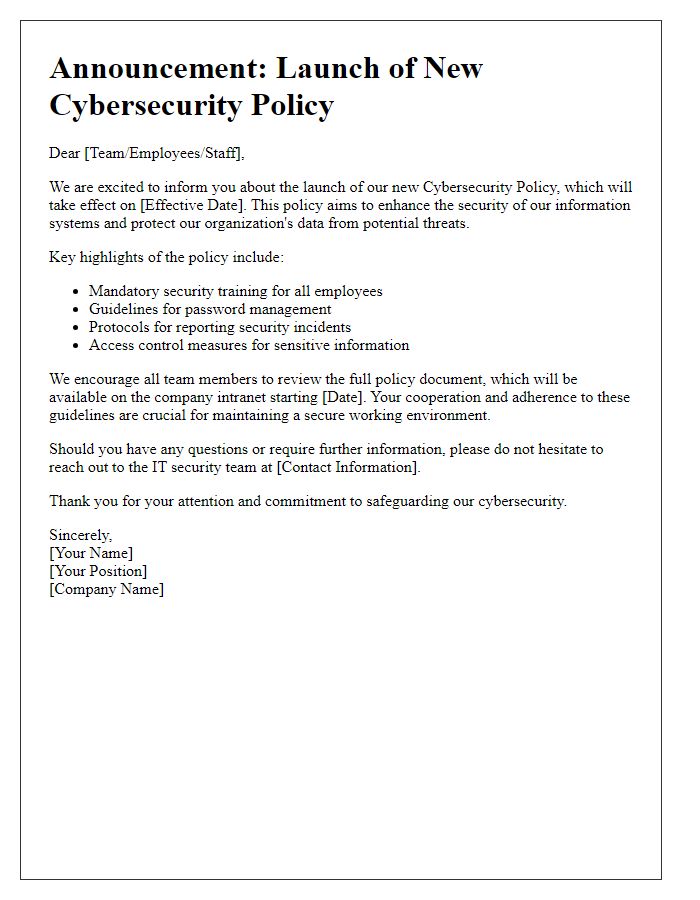


Comments